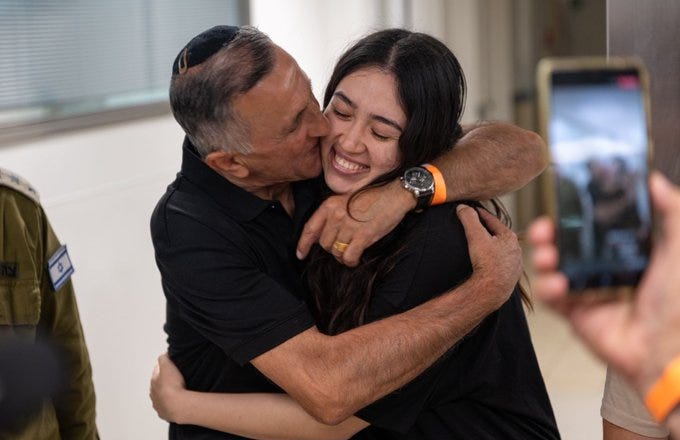When Hostages Come Home

Noa Argamani embraces her father after being liberated from Hamas captivity in Gaza. (Reuters/Redux)
I was at the beach in Tel Aviv when the lifeguard broke the news. We cheered and wept for the liberation of strangers that feel like family.
87
On midday Saturday in Tel Aviv, my husband and I were sitting on the beach with our 2-year-old son when the lifeguard’s voice came over the loudspeaker. “Attention, citizens of Tel Aviv! We are thrilled to announce that four hostages have been rescued by the Israel Defense Forces alive! Noa Argamani, Andrey Kozlov, Almog Meir Jan, and Shlomi Ziv! Am Yis…
Continue Reading The Free Press
To support our journalism, and unlock all of our investigative stories and provocative commentary about the world as it actually is, subscribe below.
$8.33/month
Billed as $100 yearly
$10/month
Billed as $10 monthly
Already have an account?
Sign In

